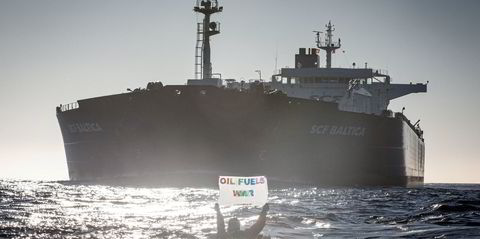Shipping is becoming a “far less speculative industry” and returns are more manageable and sustainable, according to BRS Group chairman Tim Jones.
“We are starting to leave the boom-and-bust shipping cycle to concentrate on innovation, technology, data and financial tools, where returns can be foreseen and anticipated,” he said.
“Accordingly, shipping and the environment will be better off as a result.”
Writing in the shipbroker's annual review, Jones argued that a combination of factors should lead to a healthier and more sustainable future for shipping.
He insisted that stakeholders were pushing for much tighter emissions restrictions.
“If shipping was a country, it would be the sixth-largest polluter in the world,” he said.
“No doubt shipping, like other industries which heavily contribute to emissions, will have to invest more in research and development, and find new ways of transporting by sea while emitting less.”
Shorter life
Jones anticipated that a shorter asset life will become a feature of the shipping sector.
“The usable life of an asset will no longer be the standard 25 to 30 years, which shipowners used to amortise their assets,” he said. “It will shorten significantly.”
He added that financing already seems to be limited to seven to 10 years.
“Shorter shelf life, means less risks, but higher costs,” he said. “Combine this with ‘sustainable lending’ and we should see a far less speculative industry.”
Financing will require “end users and financial leases or charters to guarantee a return on ever more expensive and technologically advanced vessels”.
Jones added that shipping markets are becoming more financially sophisticated and freight hedging tools are becoming mainstream.
“Their use will soon be essential in every owner's and charterer’s maritime endeavours,” he said.
Innovation
Innovation was also leading to a less speculative market, Jones said.
He added that this could be “driven by shipyards, citizen pressure to curb emissions, sustainable financing, or by improved data transparency and monitoring of commercial practices”.
“The oil majors, the miners, the mega container carriers are already increasingly working hand in hand with yards and owners to prod our industry towards a future where it is capable of meeting future global transportation requirements efficiently and sustainably,” he said.





